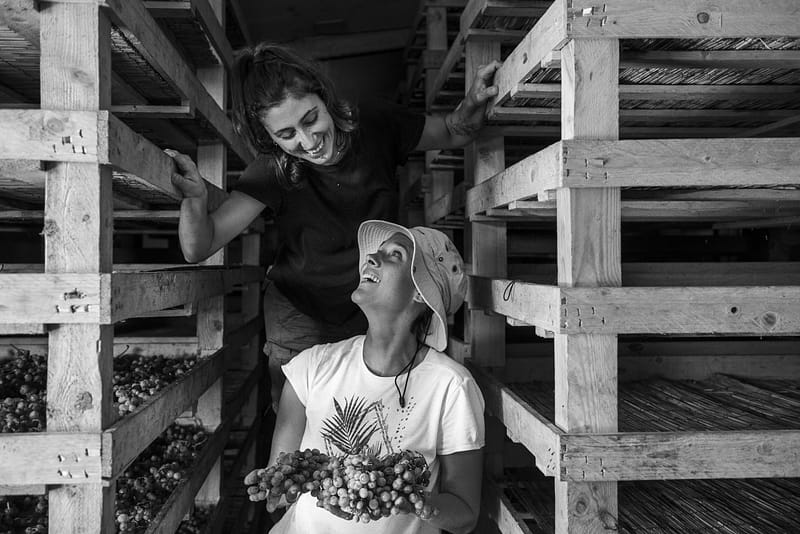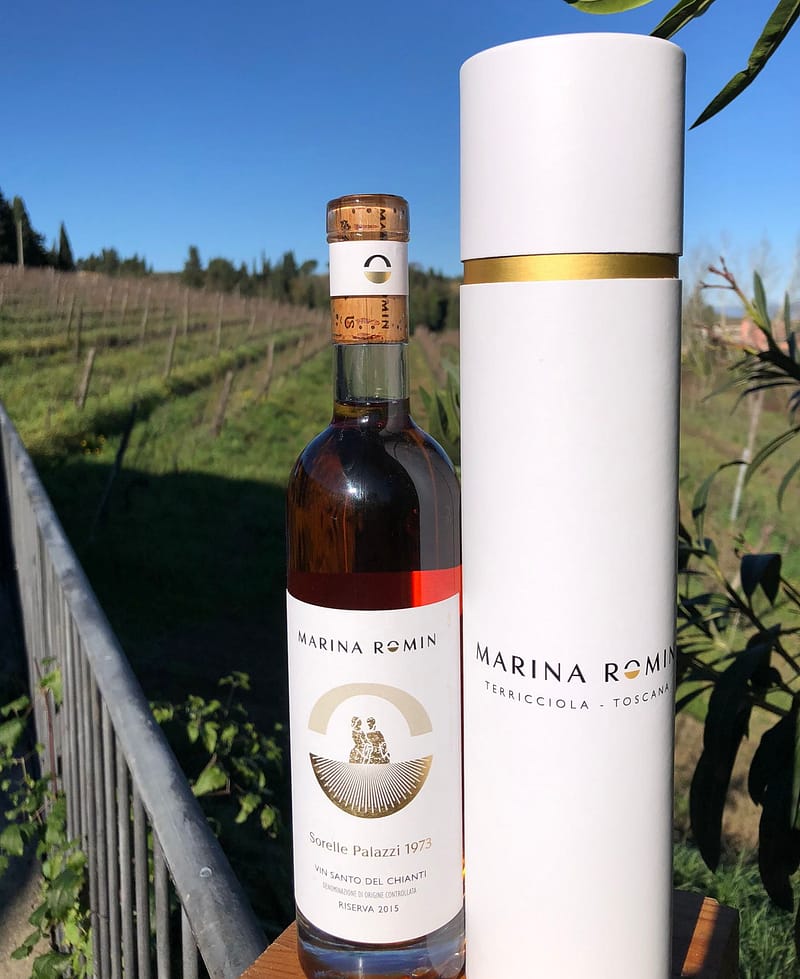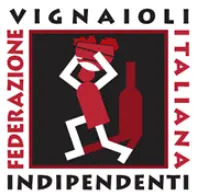A shared dream
The winery was founded in 1973, and its nearly 50-year history is intertwined with the life paths of two families, united by a genuine and outspoken passion for wine.
our story
Sisters Paola and Donatella Palazzi, founded the company in 1973 and began to build a reality that soon became a reference point for some of the wines and organic viticulture. Due to a lack of generational turnover, they reluctantly decided to sell the winery in 2017.
In 2017, Marina and Ivanhoe Romin, starting with the search for a sweet home in the country that was close to their relatives and had a vineyard that was “the size of a family often on the road,” met the “Sisters” and were fascinated by their foresight and life’s work.

the farm
The estate has only indigenous grape varieties (including some very rare ones), has been organically farmed for almost 50 years, vinifies everything in concrete tanks, and produces a Vin Santo del Chianti that is out of the ordinary.
The property with its total 24 hectares (9 hectares of vineyards, 8 of olive groves) requires considerable effort to revive so for Marina it becomes a full-time job and a new life mission.
Today
Within 18 months, the two families complete the handover aimed at ensuring continuity in the quality of certain products, including Vin Santo, and in 2019, the historic winery restarts with a new impetus.
A few months later, renovations of the nearly 2,000 square meters of real estate begin, and in 2022 a new, more complex and contemporary wine collection is presented, which you will have the opportunity to taste during this event.
Organic for almost 50 years
Since its inception, our winery has followed the principles of Organic Farming, a crop management little known at the time but in which we have always believed until today, with the confirmation of ICEA certification.
A forward-looking vision that enhances a research and sustainability work of almost half a century.

Terricciola
Terricciola, city of wine in Etruscan territory: included in the Wine Route of the Pisan Hills, it is the reference for the wine culture of this area. Numerous Etruscan finds suggest the central role for wine and oil production already in ancient times, certainly due to the particular type of soil, characterized by sands and fossil deposits, conducive to the cultivation of olive trees and vines.
The name Terricciola refers to the word terrain, thus to the concept of Terroir. The village is part of the National Association of Wine Cities.






